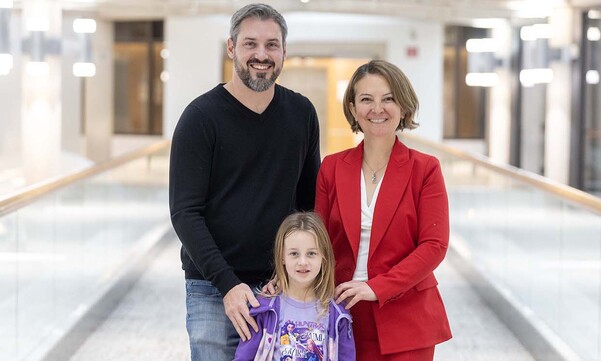Heart attack survivors age 65 and older may benefit from an implantable defibrillator, which can detect abnormal and potentially fatal heart rhythms and shock the heart back into rhythm. However, few seniors are getting the lifesaving devices, according to a Duke study published in JAMA.
Implantable Device Lowers Repeat Heart Attack Risk
Previous studies have shown the benefits of implantable defibrillators in younger people. Yet, advanced age, a recommended waiting period, and lack of strong communication when care is transitioned from the hospital to the patient’s regular doctor can all contribute to the decreased use of the devices in seniors.
“Current data suggests that we are grossly underutilizing this therapy,” said Tracy Wang, MD, a Duke cardiologist and senior author of the study published in the Journal of the American Medical Association.
Wang and her colleagues analyzed data from more than 10,000 people who were around 78 years old, and whose heart attack had weakened their heart function. One year after their heart attack, the researchers found only 8 percent of this older population had received an implantable defibrillator. Their study also identified a one-third lower risk of death after two years in patients who had defibrillators when compared to those who didn’t. (Read the press release.)
Why Are Few Seniors Receiving Defibrillators?
Several factors are contributing to the lower use of defibrillators in this older population. Some doctors may believe advanced age makes a patient a poor candidate. However, the study showed that a defibrillator could improve the survival of patients over age 80.
A recommended 40-day waiting period may create a gap in care at a time when patients are most vulnerable. The transition of care from the hospital to a follow-up doctor visit coincides with the time when patients’ hearts are still recovering. Sean Pokorney, MD, a cardiology fellow at Duke and lead author of the study, says that’s why patients should stay in regular contact with their cardiologist. He said patients who continue to attend follow-up appointments are more likely to get devices.
Talk to Your Doctor
Defibrillators aren't for everyone. Some older patients do not want one, acknowledged Dr. Wang, and not everyone with a weak heart is a candidate. There is a trade-off between the risks and benefits of the small, battery-powered device, which is surgically inserted under the skin. "This decision requires a good discussion between the doctor and the patient to understand goals of care and patient preferences,” said Wang.
Pokorney recommends heart attack patients talk to their doctors about their options to see if he or she is a candidate for a defibrillator. More research is needed to determine the optimal time to implant the device, and which patients will benefit the most.
Wang agrees. “The decision to use one has to be individualized.”





